Discover the Women of the Hall
These are the Inductees of the National Women’s Hall of Fame. Select any of the women to discover their stories and learn how they have influenced other women and this country.
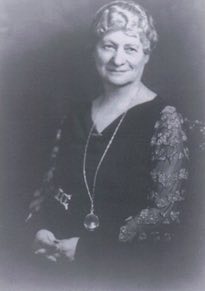 Hannah Greenebaum Solomon
Humanities
1858
Illinois
1995
Hannah Greenebaum Solomon
Humanities
1858
Illinois
1995

Hannah Greenebaum Solomon
Club woman and welfare worker on matters relating to child welfare, she organized a nationwide Jewish Women’s Congress as part of the 1890’s World’s Fair. It later became the National Council of Jewish Women, to which she was elected its first president.
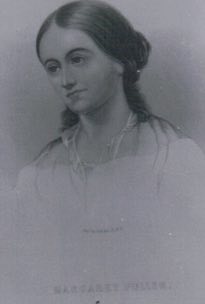 Margaret Fuller
Arts
1810
Massachusetts
1995
Margaret Fuller
Arts
1810
Massachusetts
1995

Margaret Fuller
Literary critic, editor, teacher and author. Fuller’s early writings inspired leaders of women’s rights. She was editor of the The Dial, a Transcendental journal, and she advocated liberation for all humanity.
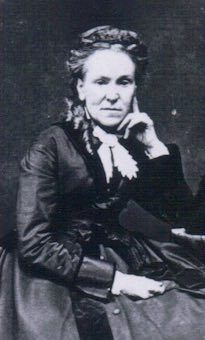 Matilda Joslyn Gage
Humanities
1826
New York
1995
Matilda Joslyn Gage
Humanities
1826
New York
1995

Matilda Joslyn Gage
Best known as the co-author (with Elizabeth Cady Stanton and Susan B. Anthony) of The History of Women’s Suffrage. She served in the National Women’s Suffrage Association and helped form suffrage groups in order to gain the right to vote for women.
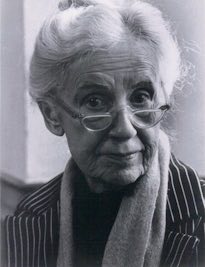 Maggie Kuhn
Humanities
1905
1995
Maggie Kuhn
Humanities
1905
1995

Maggie Kuhn
Following a forced retirement at age 65, Kuhn began work forming the Gray Panthers, an organization which addressed age discrimination and pension rights. Kuhn also addressed large public issues, including nursing home reform, forced retirement and fraud against the elderly.
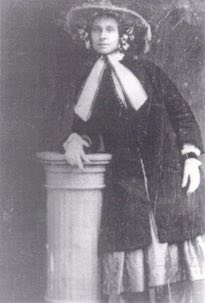 Amelia Bloomer
Humanities
1818
New York
1995
Amelia Bloomer
Humanities
1818
New York
1995

Amelia Bloomer
First woman to own, operate and edit a newspaper for women, The Lily. First published in 1849 in Seneca Falls, New York, it became a recognized forum for women’s rights issues. She often wore full-cut pantaloons under a short skirt, giving birth to the term “bloomers.”
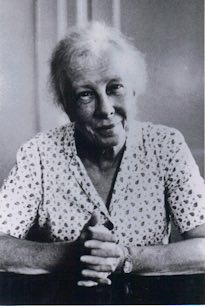 Lillian Moller Gilbreth
Science
1878
California
1995
Lillian Moller Gilbreth
Science
1878
California
1995

Lillian Moller Gilbreth
Industrial engineer and expert in motion studies, Gilbreth was a pioneer in the relationship between engineering and human relations. She convinced managers that worker-efficiency is the result of the quality of the work environment.
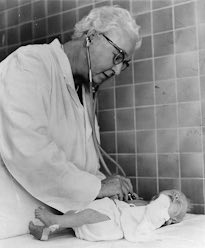 Virginia Apgar
Science
1909
New Jersey
1995
Virginia Apgar
Science
1909
New Jersey
1995

Virginia Apgar
Physician best known for development of the Apgar Score in 1952. This system of simple tests is used to determine whether a newborn child requires special medical attention, and it has saved thousands of lives.
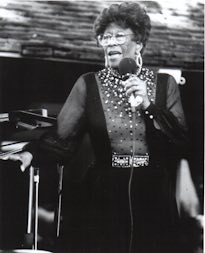 Ella Fitzgerald
Arts
1917
Virginia
1995
Ella Fitzgerald
Arts
1917
Virginia
1995

Ella Fitzgerald
World-renowned jazz singer and the first pop musician awarded the Lincoln Center Medallion. At 15, she entered a talent contest to dance. Her knees shook so much during the contest, she chose to sing instead and was discovered by a Chick Webb band member.
 Mary Baker Eddy
Humanities
1821
New Hampshire
1995
Mary Baker Eddy
Humanities
1821
New Hampshire
1995

Mary Baker Eddy
The only American woman to found a lasting American-based religion, the Church of Christ (Scientist). Her personal struggles led her to believe in a system of prayer-based healing. In 1908, two years before her death at 89 she started The Christian Science Monitor.
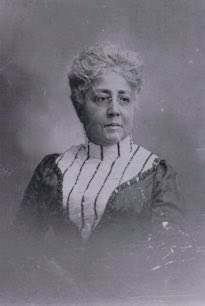 Josephine St. Pierre Ruffin
Humanities
1842
1995
Josephine St. Pierre Ruffin
Humanities
1842
1995

Josephine St. Pierre Ruffin
African American leader from New England. Ruffin was a suffragist, fought slavery, and founded several organizations for African American women, including the Boston branch of the NAACP and the League of Women for Community Service.
 Ann Bancroft
Education, Science
1955
Minnesota
1995
Ann Bancroft
Education, Science
1955
Minnesota
1995

Ann Bancroft
First woman to travel across the ice to the North and South Poles. She was the first woman to travel across Greenland on skis, and in 1993, was leader of the American Women’s Expedition, a group of four who skied more than 600 miles to the South Pole.
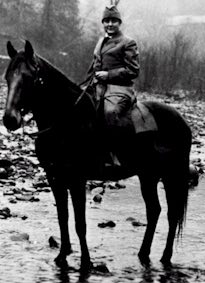 Mary Breckinridge
Science
1881
Tennessee
1995
Mary Breckinridge
Science
1881
Tennessee
1995

Mary Breckinridge
The United States foremost pioneer in the development of midwifery and provision of care to rural areas. Breckinridge founded the Frontier Nursing Service.
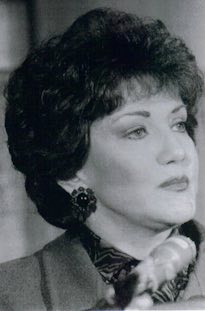 Elizabeth Hanford Dole
Government, Humanities
1936
North Carolina
1995
Elizabeth Hanford Dole
Government, Humanities
1936
North Carolina
1995

Elizabeth Hanford Dole
First woman to hold two cabinet positions as Secretary of Transportation under Ronald Reagan and Secretary of Labor for President George Bush. Dole later became President of the American Red Cross.
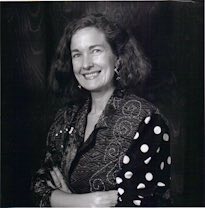 Helen LaKelly Hunt
Philanthropy
1949
Texas
1994
Helen LaKelly Hunt
Philanthropy
1949
Texas
1994

Helen LaKelly Hunt
Creative philanthropist who has used her own resources and others to create women’s funding institutions. Hunt is Co-founder of the National Network of Women’s Funds, and creator of the New York Women’s Foundation, the Dallas Women’s Foundation, and The Sister Fund, all of which provide resources to support grass roots women’s programs and projects.
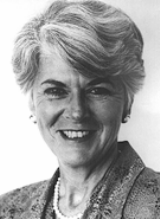 Geraldine Ferraro
Government
1935
New York
1994
Geraldine Ferraro
Government
1935
New York
1994

Geraldine Ferraro
First woman nominated by a major political party as a candidate for Vice President of the United States. Chosen to serve as the running mate of Democratic Presidential Nominee Walter Mondale in 1984, Ferraro had been an Assistant District Attorney in New York and later served in the United States Congress.
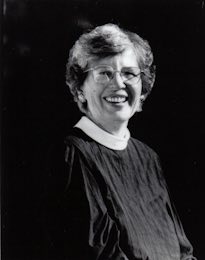 Betty Bone Schiess
Humanities
1923
Ohio
1994
Betty Bone Schiess
Humanities
1923
Ohio
1994

Betty Bone Schiess
Religious leader. Schiess led the successful effort in 1974 to have women ordained as priests in the Episcopal Church in America, elevating the position of women in the Episcopal Church at all levels.
 Zora Neale Hurston
Arts
1891
Alabama
1994
Zora Neale Hurston
Arts
1891
Alabama
1994

Zora Neale Hurston
Novelist, anthropologist and folklorist who contributed greatly to the preservation of African American folk traditions and to American literature. Hurston’s best known works include Their Eyes Were Watching God and her autobiography, Dust Tracks on the Road.
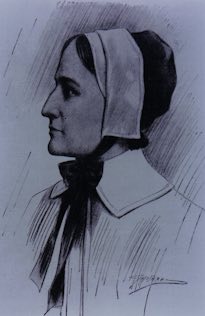 Anne Hutchinson
Humanities
1591
England
1994
Anne Hutchinson
Humanities
1591
England
1994

Anne Hutchinson
Religious leader who insisted on practicing her religious faith as she chose, including holding religious meetings in her home, the first woman in the new world to do so. As a result, she was banished from the Massachusetts Bay Colony.
 Oprah Winfrey
Arts, Business, Philanthropy
1954
Mississippi
1994
Oprah Winfrey
Arts, Business, Philanthropy
1954
Mississippi
1994

Oprah Winfrey
The first Black woman to own her own television production company and who became television’s highest-paid entertainer. She is an advocate for ending child abuse, and she contributes generously to colleges and universities.
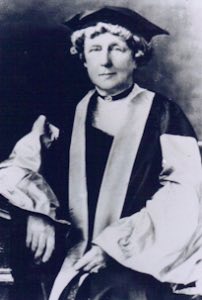 Annie Jump Cannon
Science
1863
Delaware
1994
Annie Jump Cannon
Science
1863
Delaware
1994

Annie Jump Cannon
Astronomer who perfected the universal system of stellar classification. While working at Harvard Observatory, Cannon compiled the largest accumulation of astronomical information ever assembled by an individual.
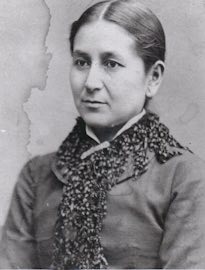 Susette La Flesche
Humanities
1854
Nebraska
1994
Susette La Flesche
Humanities
1854
Nebraska
1994

Susette La Flesche
Member of the Omaha Tribe and a tireless campaigner for native American rights. La Flesche was the first Native American published lecturer, artist and author. She helped change national perceptions about the rights of Native Americans.
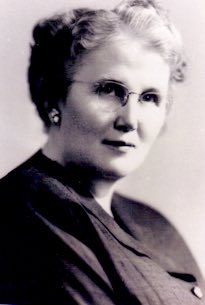 Louise McManus
Science
1896
1994
Louise McManus
Science
1896
1994

Louise McManus
First American nurse to earn a Ph.D. Louise McManus was central to the establishment of schools of nursing in colleges and universities, providing the fundamental basis for nursing science growth.
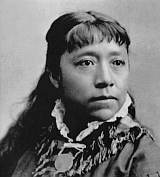 Sarah Winnemucca
Humanities
c.1844
Nevada
1994
Sarah Winnemucca
Humanities
c.1844
Nevada
1994

Sarah Winnemucca
Paiute leader who dedicated her life to returning land stolen by the government back to the tribes, especially the land of her own Paiute Tribe.
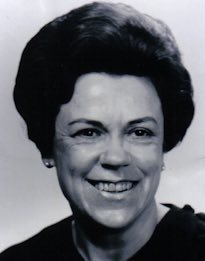 Catherine East
Humanities
1916
1994
Catherine East
Humanities
1916
1994

Catherine East
“The midwife of the contemporary women’s movement,” as described by Betty Friedan. East was a key staffer on President John F. Kennedy’s first-ever Presidential Commission on the Status of Women in the 1960s. East persuaded Friedan and others to create the National Organization for Women to lead the drive to eliminate gender discrimination.
